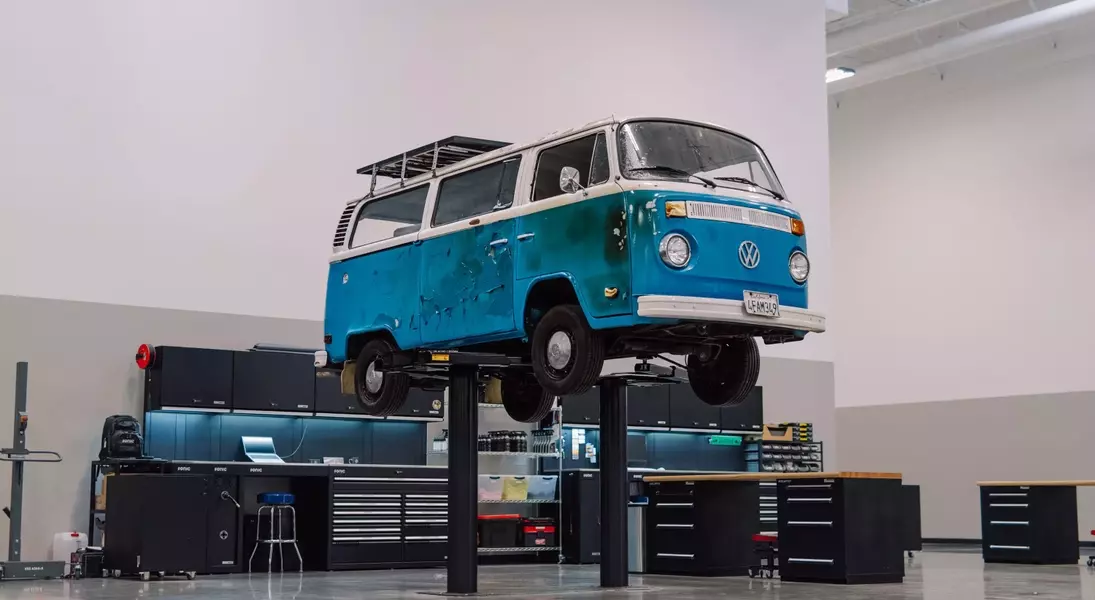
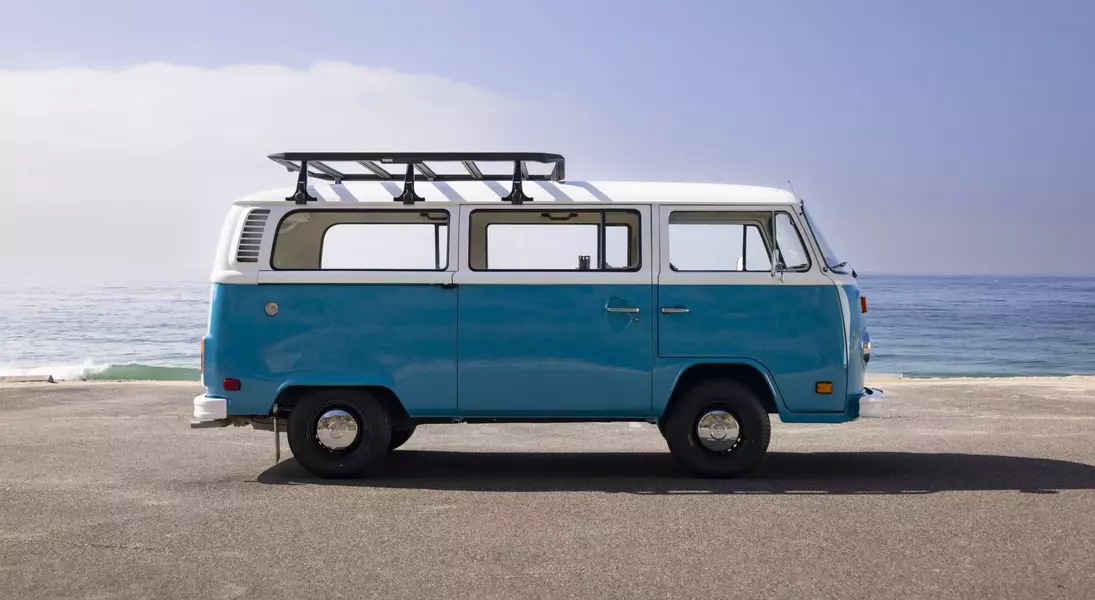
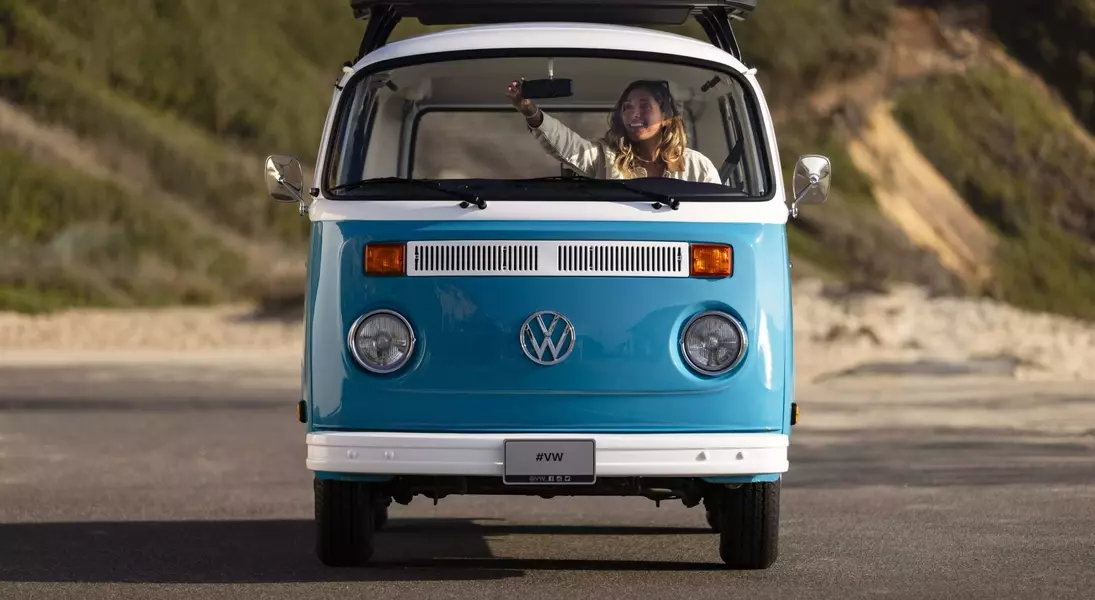
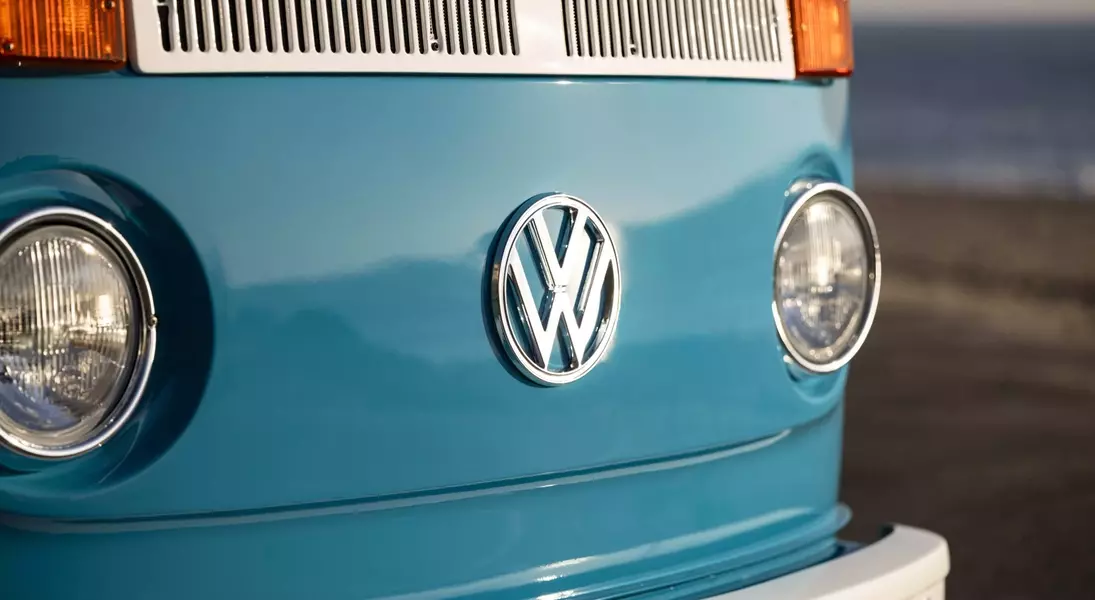
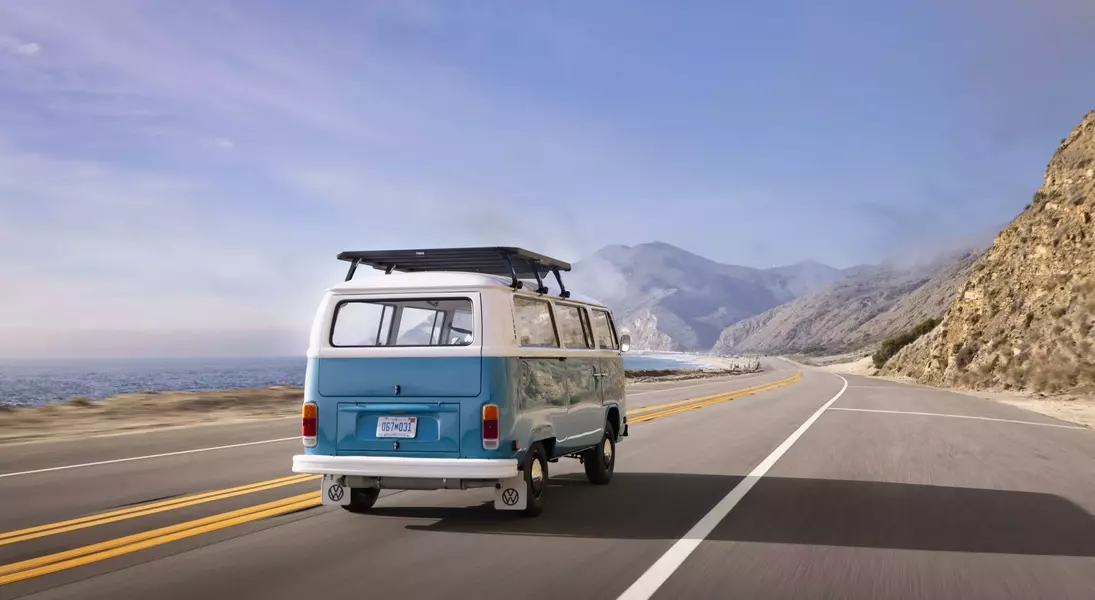
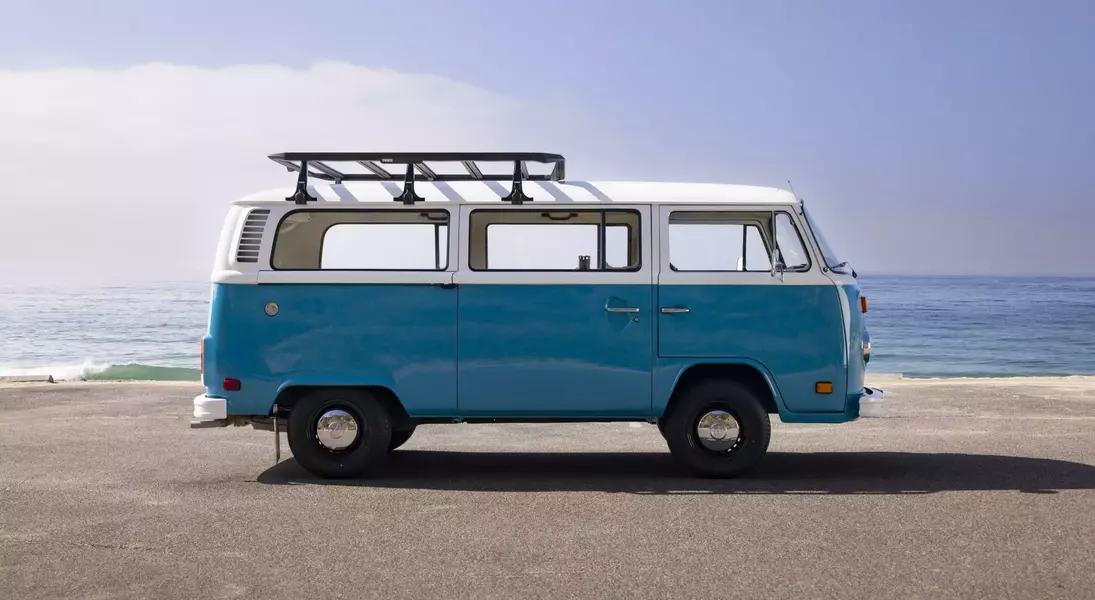
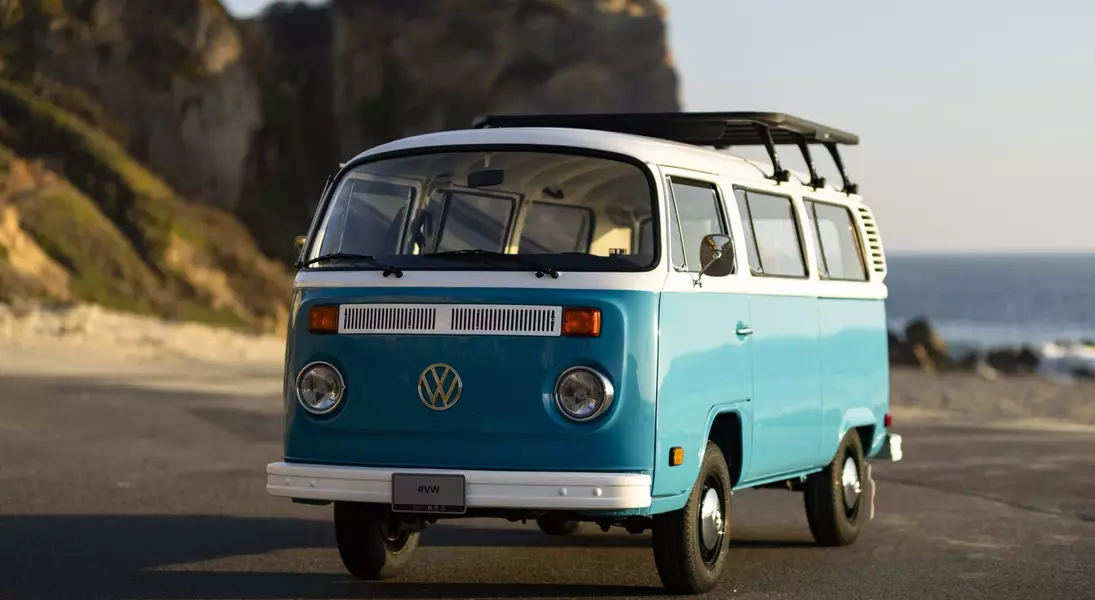
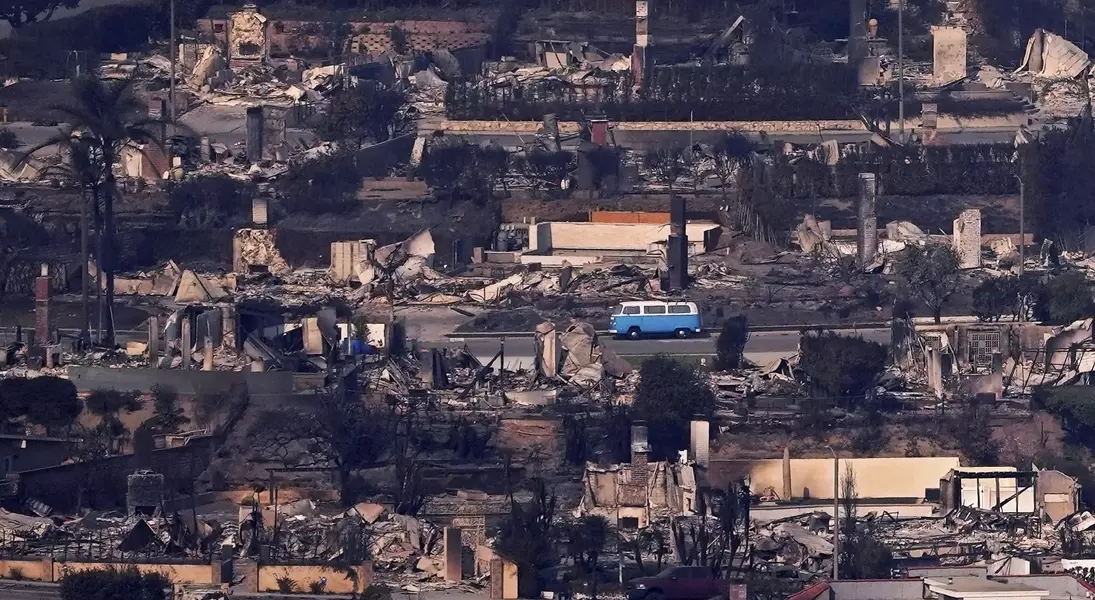
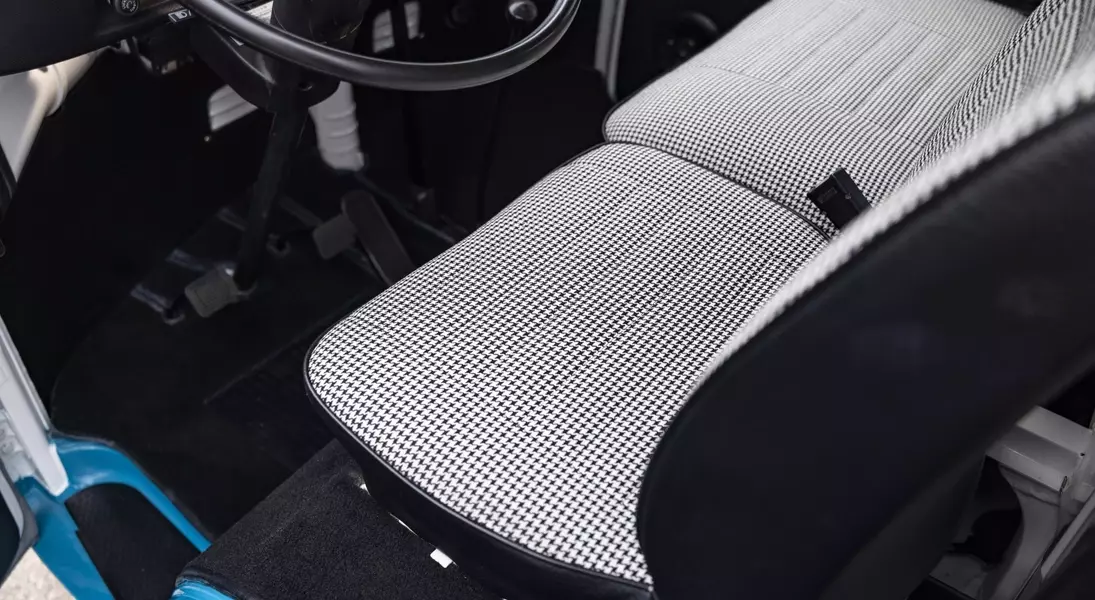
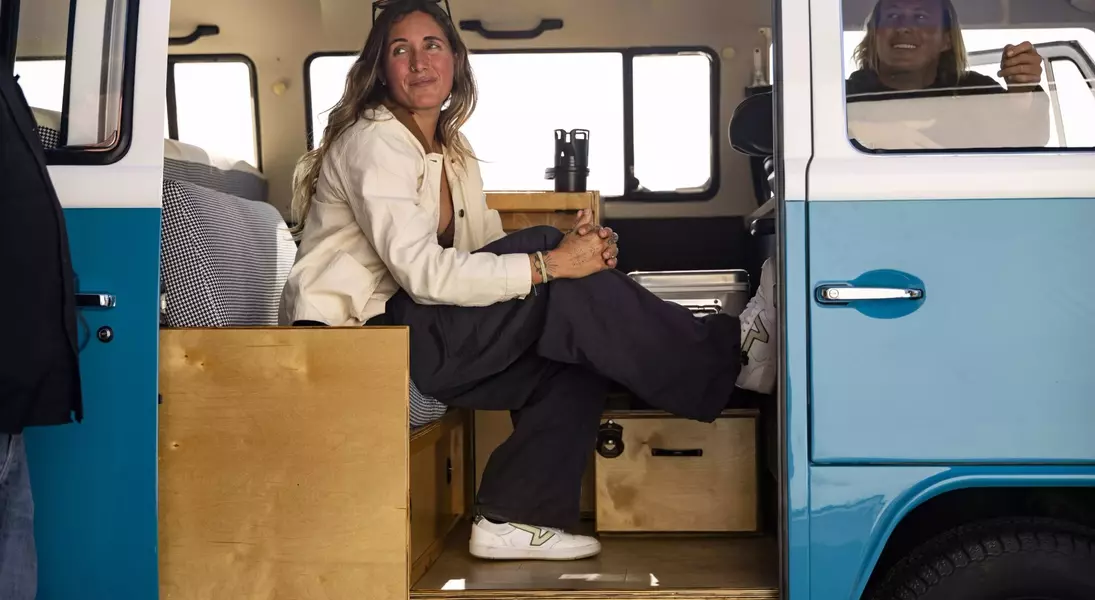
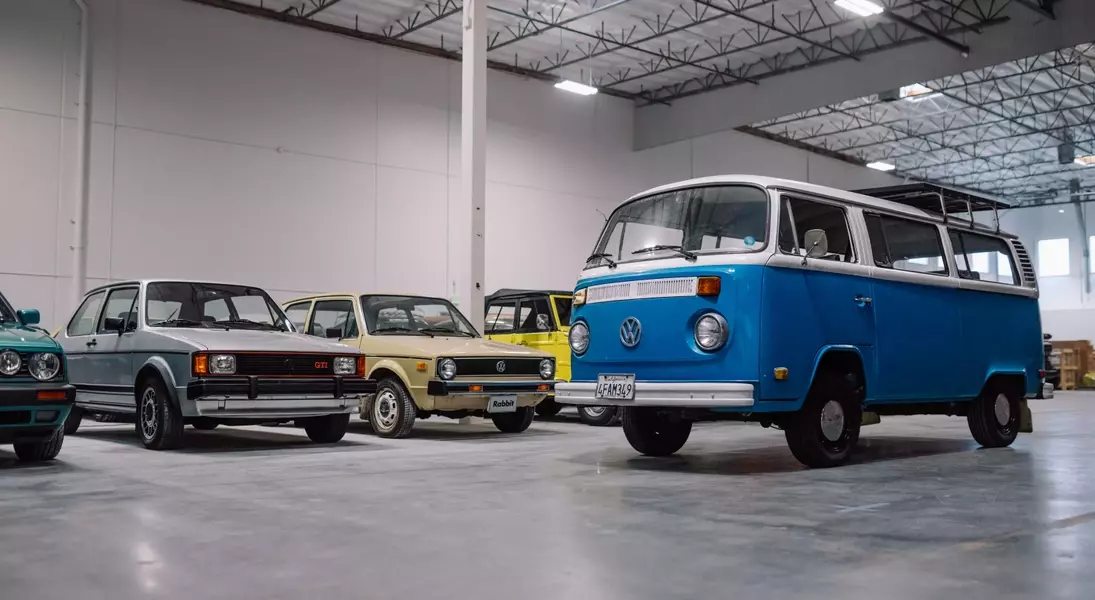
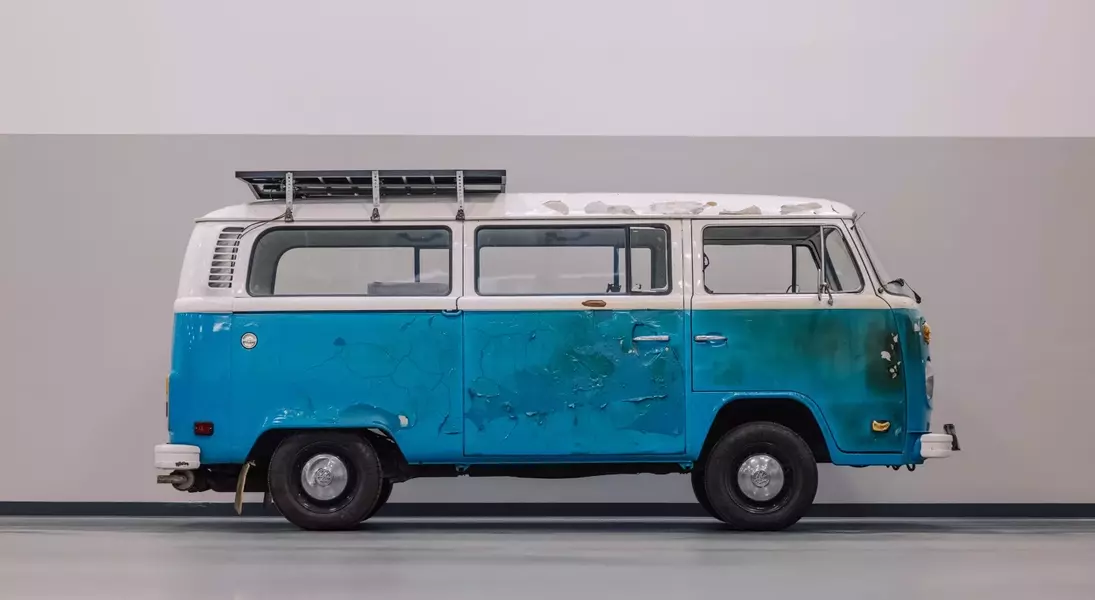


A 1977 Volkswagen T2 Bus, affectionately known as "Azul," has emerged as a beacon of resilience following the devastating California wildfires. This vehicle's extraordinary survival against overwhelming odds inspired Volkswagen of America to undertake a comprehensive restoration. Once a charred relic, Azul now shines brightly, serving as a powerful symbol of hope and enduring strength, proudly showcased at the 2025 Los Angeles Auto Show.
The Rebirth of Azul: A Story of Survival and Restoration
In the aftermath of the catastrophic Palisades fire that swept through Los Angeles earlier this year, leaving a trail of destruction in its wake, an astonishing sight captured global attention. Amidst the blackened ruins of homes and structures in a Malibu neighborhood, a vintage 1977 Volkswagen T2 Bus stood remarkably intact. This unexpected survival earned the vehicle the moniker "magic bus."
A poignant photograph by the Associated Press, depicting the blue and white van as a lone survivor in a desolate landscape, quickly went viral. This image not only touched hearts worldwide but also reached the offices of Volkswagen of America. Inspired by the van's improbable resilience, the company decided to embark on a full restoration project for the classic VW.
The owner of this special T2 Bus, artist and surfer Megan Weinraub, had christened her beloved vehicle "Azul." When the fires raged, consuming nearly everything in their path, Azul emerged with only minor damage despite being almost engulfed by flames. Megan was deeply moved when she learned of her van's survival and Volkswagen's commitment to its restoration. For her, Azul is more than just a vehicle; it's an integral part of her family.
The restoration process began at the Volkswagen Group of America's Oxnard Facility. Upon arrival, Azul presented a range of challenges, including a shattered rear window, an interior heavily saturated with smoke odor, melted turn signal lights, and significant damage to the paintwork, particularly on the passenger side, which had borne the brunt of the intense heat.
The dedicated VW restoration team meticulously assessed every component requiring replacement, a formidable task given the vehicle's nearly five-decade age. A complete repaint was necessary, involving the custom mixing of its distinctive blue hue to match the original. Beyond cosmetic enhancements, Azul also underwent extensive mechanical repairs to ensure it was fully roadworthy once more.
The completed restoration is a testament to perseverance and passion. More than simply returning a cherished possession to its owner, Azul's transformation represents a rare moment of triumph in an otherwise difficult situation. Rachael Zaluzec, Senior Vice President of Brand Marketing and Customer Experience for VW Brand NAR, remarked on the significance of the project: "We recognize for Megan, Azul isn’t just a 1977 T2 but a part of her family. For us, this passionate restoration project has served as a symbol of resiliency, making Azul a part of the Volkswagen family as well."
Weinraub herself expressed profound gratitude, stating, "When the photo of Azul went viral, I felt like the entire world experienced a piece of my heart. And when Volkswagen reached out to see if Azul really survived, I was touched and couldn’t believe it. Seeing it now, I feel it’s even more of a symbol of hope than it was before."
The legacy of the classic Type 2 Microbus continues to influence modern design, notably inspiring the retro-styled ID.Buzz minivan, which now features a fully electric powertrain. While the two vehicles differ significantly under the hood, the familial resemblance is unmistakable, connecting past and present through iconic design. The T2, first introduced in 1967, built upon the foundation of its predecessor, the T1, which began production in 1950 with its distinctive split windshield. This pioneering design led to a new generation of utilitarian vans, influencing models like the Ford Econoline, Chevrolet Corvair 95 Corvan, and Dodge A100. Despite the evolution of automotive trends and the current market's preference for SUVs, the original VW Bus remains an enduring emblem of freedom, adventure, and practical versatility.
The story of Azul serves as a powerful reminder that even in the face of immense adversity, there can be moments of miraculous survival and heartwarming acts of restoration. It highlights the deep emotional connection people share with their vehicles, transforming them into more than just transportation but symbols of personal history and collective memory. Volkswagen's initiative not only brought a classic back to life but also amplified a message of hope and resilience, resonating far beyond the automotive world.
